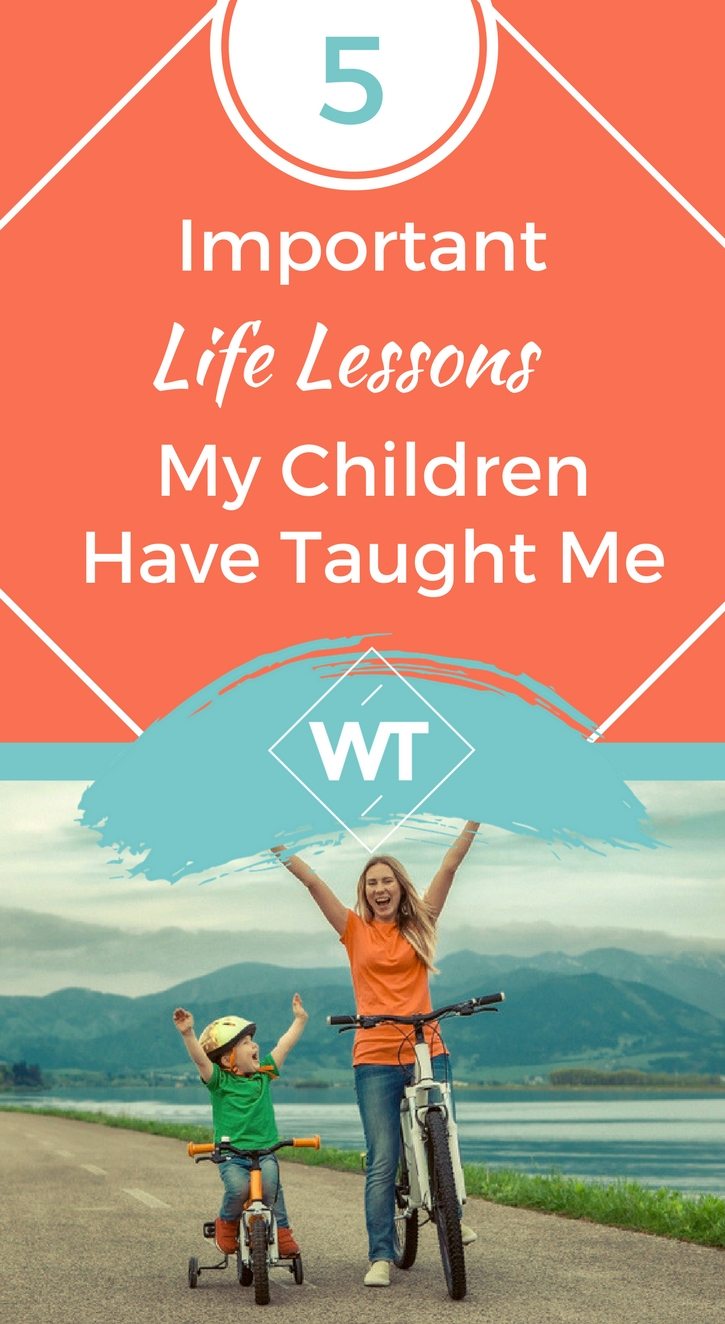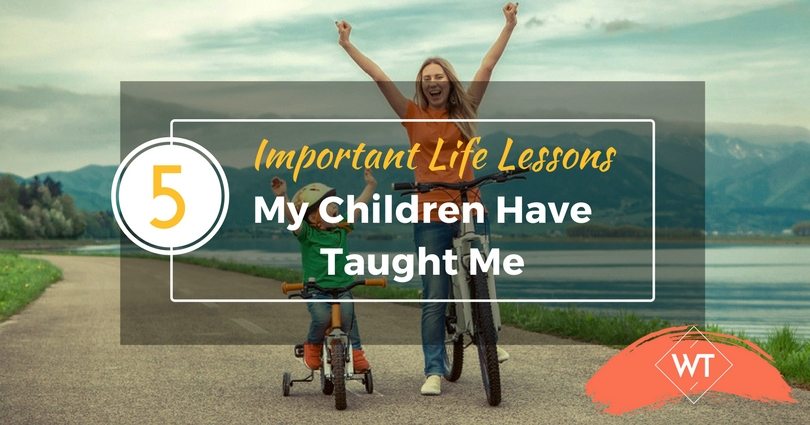5 Important Life Lessons My Children Have Taught Me

While I was trying to educate my children…they were teaching me life lessons. ~ Vandana Sehgal (Tweet this)
We gain very diverse life lessons from people all around us and children are part of that group. Kids teach us things in an interesting manner, yet only if we receive it sensibly can we create a beautiful life. We need to be receptive to the information coming from these great teachers. They teach us to be courageous, confident and communicative through their actions, words, and behavior. Many other life lessons that kids teach us at different stages of life are:
1. To enjoy life
The child in the Annie movie (2014) asks Jamie Foxx, “When do you have fun?” and he replies, “Work is my fun.” Really? How many of us agree with this?
The majority of us are busy earning and buying our materialistic fun. Yet as children we all had this great talent of finding enjoyment in simple things. Holding colors or running around meant immense laughing and pleasure. As we grow we label simple things as “childish” and the fun element vanishes.
We use “responsibilities or time constraints” as an excuse and do nothing but make life hard. Once a colleague admitted to feeling guilty for not being able to enjoy his child’s childhood. On inquiring what stops him…he didn’t have a convincing reply.
The life lessons of children include teaching us to find enjoyment even in the simplest moments of life. Why not sing a song to your spouse whenever you feel like it or have a hair-brushing date every morning with your child or just squeeze out a little time to have a lunch date with your parents once a month.
You may dismiss the whole idea, so let me ask you, “When do you want to start living this life, now or after retirement?” “How are you so sure about living till / after your retirement?”
2. To be patient and not to give up
We all know that children keep trying patiently to achieve their milestones. Giving up easily is not a preferred choice. Some might feel anxious or may need a slight push, but the majority of them are self-motivated. They rarely shy away from failing. To reach their goals kids use trial and error, observation, imitation as their tools and even ask questions but they don’t stop.
Amusingly adulthood takes away all these qualities. We are scared to accept failure. Patience and self-motivation are just out the window, giving the credit to competition or a larger-than-life ego. A child’s life lessons shows us that patience might be bitter but its fruit are sweet.
3. How to speak
What? Kids teach us how to talk? Isn’t it other way round!
No it’s mutual. We teach our child the usage of words and formation of sentences. Similarly if we use a wrong tone or a word so they do. Hence, the choice is with us about which reflection we want to see. For a child it’s difficult and confusing to understand how the usage of the “F” word is okay for dad or mom but not for them.
Using filthy or abusive words could be an adult thing but when picked up by the child, the inevitable embarrassment, explanation, and correction becomes a stressful process. If taken positively our kids’ life lessons help us to keep a check on our language. Many parents may find this suffocating. On the flip side minding our own language is much easier than correcting the child and feeling embarrassed in front of others.
4. To follow mindfulness
According to Buddhism, mindfulness is about being in the present, nothing is past or future. A child hardly thinks about the future, what matters to them is the moment at hand. They don’t want to know or understand how education will make a bright future.
When in school they enjoy the company of friends and not the idea of being future scholars. When in the playground they are focused on hitting the ball into the goal and not becoming the best shot. They know how to enjoy ice cream and they love the moment ice cream drips on their clothes or slides down their hands. For them that is the biggest moment of enjoyment.
Adulthood drifts us away from present. We constantly live either in the past or the future. We hold grudges and spoil our relationships. Or stress while anticipating a problem and have sleepless nights. Innocently, the life lessons of children teach us to enjoy this very moment and to be mindful.
5. To use hugs unconditionally
For centuries mothers know instinctively that a hug works as the best comforting for a child. Now doctors and scientists are also coming to recognize the power of touch—and not just touch therapies such as reflexology—but simple acts such as giving a back rub, holding hands, sharing a hug or putting your arm around someone.
Innocently, children use the hug in every condition of life. All types of emotions positive or negative are expressed through this simplest tool. A friend shared that whenever she is sick her daughter kisses her hand and says, “Mama, now all your pain will disappear.” Another friend mentioned that her son keeps hugging without any reason and that makes her feel soothed and warm.
Surprisingly as we grow old we forget the soothing feel of touch. Many personal problems can be sorted out by giving a tight hug or holding the hand gently. In fact a hug is one medicine that can be given without any reason and the more we give, the more benefits we reap. Touch is mutually beneficial and does not require any words to express the feeling.
Life lessons benefits
Learning from this list of life lessons from a child will reduce stress and increase your physical and psychological well-being. It also has a hidden benefit. If your child can see that you are incorporating some of their ideas into your own life, it gives them a higher sense of self.
It also opens the door to two-way communication and guidance. While you may think at first, that guidance from you child isn’t something you need, I should like to point out that something called “reciprocity” kicks in here. When your child believes you are open to what they have to say about things (for example their life lessons) then they feel more comfortable being open to what you have to say about things as well.
This works wonders on older children!









Leave a Reply